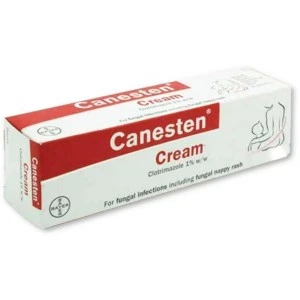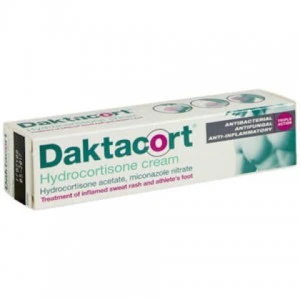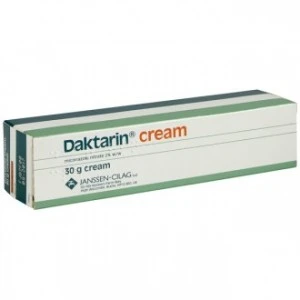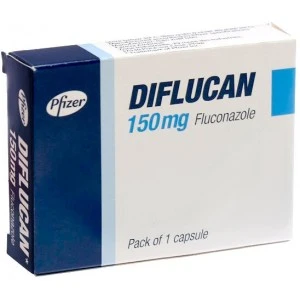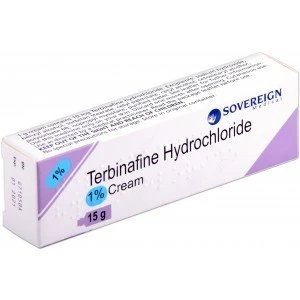Ringworm and Jock Itch
You can buy terbinafine and diflucan for fungal infections from Prescription Doctor's UK pharmacy. It is essential to treat fungal infections promptly to prevent the infection from spreading to other parts of your body or infecting others.
Canesten Cream
- Kills fungal infection
- Easy, twice daily application
- Reduces itching and irritation
Daktacort HC
Daktarin Cream
- Destroys the fungal infection
- Soothes itching
- Treats infection quickly
Diflucan
- Effective antifungal treatment
- Treats a number of fungal infections
- Eligible for next-day delivery
Terbinafine
- Directly kills fungus
- Available as cream or tablets
- Short course of treatment
Terbinafine Cream
- Directly kills fungus
- Available as cream
- A Short course of treatment
Buy Ringworm and Jock Itch Treatments Online (Terbinafine, Daktarin & Fluconazole)
It's important to treat fungal infections quickly to prevent them from spreading to other people. However, not everyone has time to visit their pharmacy to buy treatments.
With Prescription Doctor, you can buy ringworm treatments online following a quick online consultation and have fungal infection treatments delivered straight to your door.
Following an online consultation with one of our doctors, you can buy terbinafine tablets and cream, as well as fluconazole (Diflucan) or miconazole (Daktarin) from our UK-based pharmacy.
Our confidential service offers a fast and discreet delivery service to ensure your privacy.
What are ringworm and jock itch?
Ringworm and jock itch are both fungal (tinea) infections which affect the skin. The infection usually only affects the outermost layer of dead skin cells.
There are several fungi that can cause these infections. Fungi belonging to a group known as dermatophytes, including Microsporum, Epidermophyton, and Trichophyton, are often responsible for causing fungal infections in the skin.
Much like antibiotics, some antifungals are more effective against certain types of fungi than others. For example, terbinafine is effective against dermatophyte infections.
Miconazole (Daktarin) and clotrimazole (Canesten) are often used against Candida fungi, which are responsible for causing thrush.
Ringworm and jock itch is contagious and can be passed on to other people by sharing towels, clothing items, bedding, or facilities, such as changing rooms.
The fungus produces tiny particles called spores, which enable it to spread and reproduce. When spores are inhaled or land on the skin, they can cause an infection.
Under the right conditions, the fungus can survive outside the body for over a year. It prefers warm, damp environments, which makes communal changing rooms, trainers and bedding ideal.
Ringworm
Despite its name, ringworm is not caused by a parasitic worm. Ringworm gets its name from the visible sign of the infection - a red ring. Ringworm is also known as dermatophytosis.
Is Ringworm contagious?
Ringworm is contagious and can be passed on to other people.
Furthermore, ringworm is a zoonotic infection, meaning it can be passed on between humans and animals.
If your pet has a ringworm infection, it can pass the fungal infection on to you, and vice versa; you can also pass a ringworm infection to your pets.
The fungi can stay in furnishings, bedding and towels, making it possible for the infection to spread without physical contact with the infected individual.
It is essential to seek treatment for fungal infections promptly to prevent spreading them to others.
You should also wash bedding, clothing, furnishings and other surfaces which come into contact with the site of the infection regularly. This can prevent others from picking up the infection from contaminated surfaces.
How long does ringworm last?
A mild case of ringworm can clear up on its own within 2 to 4 weeks.
However, more severe cases of ringworm may require treatment for several months.
If your fungal infection is particularly severe or affecting your nails or scalp, consult your doctor.
You can find out more about how long ringworm lasts on our blog.
Jock itch
Jock itch (tinea cruris) is a fungal infection which affects the groin area. Similar to ringworm, a circular rash is typically a sign of a jock itch infection.
Jock itch gets its name from its prominence in athleticism, similar to how athlete's foot (tinea pedis) got its name.
It is often caused by tight clothing or underwear, which traps sweat. These clothes provide the ideal conditions for the fungus to grow.
What are the symptoms of Ringworm and Jock itch?
Ringworm and jock itch causes a circular rash with a silvery, scaly centre.
However, the two conditions are distinguished by the part of the body they affect. Ringworm can affect areas of the skin, such as the shoulders, arms, or legs.
Jock itch is the name given to an infection that appears around the groin.
Ringworm symptoms
Symptoms of ringworm can include:
- A circular, ring-shaped rash with healthy skin in the centre and surrounding the ring
- Flaky or scaling skin
- Inflammation
- Itching
Severe cases of ringworm can cause multiple ring-shaped rashes to appear at once. These may grow or join together over time. The rings may be raised from the surface of the skin or feature blisters around the circumference.
Jock itch symptoms
Symptoms of jock itch include:
- A ring-like rash which may develop on the upper, inner thigh, around the crotch or anus.
- Flaking or scaling skin
- Itching
- Redness and inflammation
Diagnosis of a tinea fungal infection is usually based upon the clinical image of the condition, including what it looks like and any other symptoms you may be experiencing.
For more severe cases, a sample of the skin may be taken and tested in a laboratory. This is to determine the type of fungus which is causing the infection.
Knowing this, your doctor can issue the most effective treatment for your individual condition.
How are ringworm and jock itch infections treated?
Following diagnosis, the doctor can prescribe the most suitable antifungal treatment for you.
Antifungal treatments typically work in one of two ways. Some antifungal treatments kill fungal cells by inhibiting their ability to produce a substance necessary for survival. Other treatments prevent the fungus from reproducing.
With Prescription Doctor, you can buy the most suitable antifungal treatment for your needs.
Terbinafine
Terbinafine is available as a cream or as tablets.
For small patches of ringworm or jock itch, terbinafine cream can be applied to the affected area.
In cases where a large area is infected or where terbinafine cream is unlikely to clear the infection, terbinafine tablets may be prescribed.
Terbinafine tablets are also used to treat fungal nail infections.
Daktarin (Miconazole)
Daktarin is a topical antifungal cream which contains miconazole.
It directly destroys the integrity of the fungal cells, causing them to weaken and break apart, killing them in the process. You will need to continue using Daktarin even when the lesions disappear.
There is also a formulation of Daktarin specifically for vaginal thrush called Gyno-daktarin.
Diflucan (Fluconazole)
Diflucan is a brand of fluconazole marketed by Pfizer.
For fungal skin infections, Diflucan is taken once a week for up to 4 weeks.
A course of antifungal medicine usually lasts two weeks. It is essential to continue taking Diflucan for the full duration prescribed, even if your symptoms subside or you start to feel better, to ensure the infection is completely cleared from your body.
If your condition does not improve after two weeks of continuous treatment with Diflucan, you should consult your GP or pharmacist so that they can suggest the best course of action for you.
How can I prevent ringworm and jock itch?
Fungal infections of the skin, such as jock itch, ringworm and athlete's foot, can be prevented by keeping your skin clean and dry.
If someone in your household is infected with a fungal infection, including pets, it's important to be aware of the signs and symptoms of the infection.
Avoid sharing clothing, bedding, and other personal items with individuals who are infected. Take extra steps to keep surfaces such as sofas and chairs clean - this will help minimise the spread of the infection.
If your pet is infected with ringworm, treat them at your vet's and always wash your hands after petting or handling them.
Keep cool and dry to prevent favourable conditions for fungal infections. Regularly wash bedding, towels and clothes.
Additional Resources
© 2013 - 2026 Al Muhsineen Limited. All Rights Reserved. Registered Pharmacy: 34 Halliwell Road, Bolton BL1 8RL. Registered Office: 254 First Floor, Shearbrow, Blackburn, England, BB1 8DS

